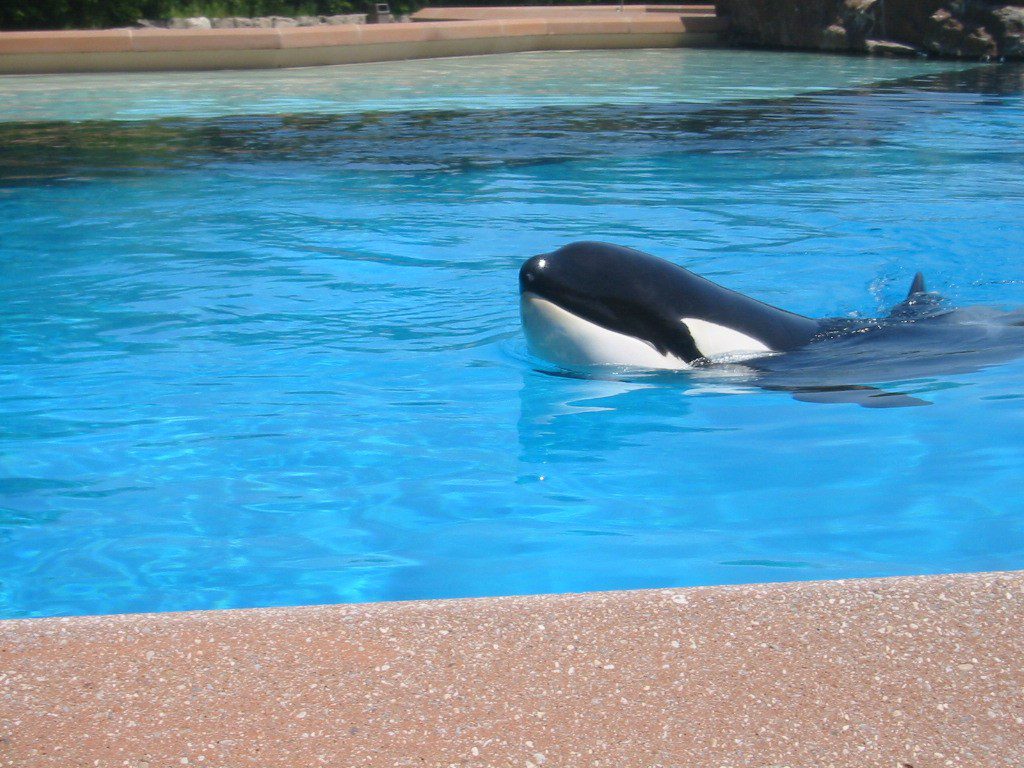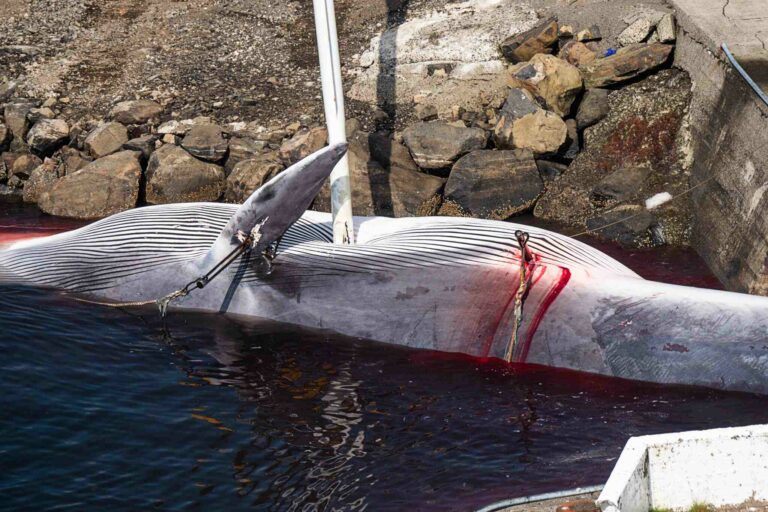The expectations of conservationists that Iceland had carried out its last whale hunt have been dashed by a government decision to proceed with the delayed annual whaling season.
In June Divernet reported that Iceland’s fisheries minister had postponed the start of the season by two months to the end of August, to allow experts time to investigate whether harpooning fin whales could ever comply with animal welfare legislation.
The unexpected decision to restart, albeit with stricter supervision and training requirements, gives Iceland’s only whaling company Hvalur the month of September in which to resume the annual slaughter. Its current licence does not run beyond that time.
Fin whales (Balaenoptera physalus) are IUCN-rated as Vulnerable to extinction, and it is only Iceland, along with Japan and Norway, that has continued the commercial hunting of whales, in defiance of the International Whaling Commission’s 1986 global moratorium.
Hvalur killed 148 fin whales last year, and official analysis of 58 of the deaths showed that 41% of them did not die instantly but took an average of 11.5 minutes, with two taking more than an hour. A recent independent report for the government revealed that whaling had little direct impact on the country’s economy – and was not even profitable for Hvalur.
“The Animal Welfare Institute is disappointed in the Icelandic government’s decision to allow commercial fin whaling to resume,” said Kate O’Connell, senior policy consultant for AWI’s marine-life programme. “This determination will surely condemn many whales to a cruel, unnecessary death.
“Thankfully, the new regulation will ban the use of electricity as a killing method, as this has not been proven to be an effective method of euthanasia.”
O’Connell pointed out that Icelandic whaling undermined the IWC moratorium’s effectiveness, while its export of whale products to Japan disregarded a CITES global ban. “Iceland’s international reputation as a premier nature destination is consistently eroded by these actions in defiance of international treaties,” she said. “Living whales provide enormous benefits to local coastal communities and ocean ecosystems.”
“Despite today’s decision, we are hopeful that Hvalur’s whaling permit will not be renewed in future seasons, and AWI will continue to push for an end to all commercial whaling.”
Whale deaths mount at ‘amusement’ park
Thirteen belugas, one killer whale and a dolphin have died since 2019 at the Marineland theme park in Niagara Falls, Ontario, which is being investigated for alleged animal cruelty. The killer whale died of a bacterial infection after four decades in captivity, the final 12 spent in isolation, but the cause of death of the other 14 animals remains unclear.
News agency The Canadian Press obtained official details of the series of deaths at the Niagara Falls tourist attraction only after making a number of freedom of information requests.

Marineland describes itself as an “aquarium, zoo and amusement park all in one”. Provincial authorities had raised concerns about its water quality and declared that all its captive marine mammals were in a state of distress, and began an investigation in early 2020, with Ontario’s Animal Welfare Services inspectors having visited the park at least 160 times since then.
In May 2021 Marineland was ordered to fix its water, but it denied that its animals were in distress and appealed against the order, claiming a “strong” welfare record.
When The Canadian Press questioned the federal government about the deaths, it cited the ongoing investigation and suggested that any questions be directed to Marineland. But the park failed to respond, – and banned journalists who had paid to enter the park.
The agency claims that the taxpayer-funded Animal Welfare Services, created to make enforcement duties more transparent, had not issued a single news release about any of its cases since 2020, when it took the work over from the Ontario Society for the Prevention of Cruelty to Animals. Read the report.
Also on Divernet: ‘Incoherent’ UK law failing whales & dolphins, Krill-trawlers cut through fin whale megapod, Death of man who ‘saved the whale’, Fin whales welcomed back to Antarctica

